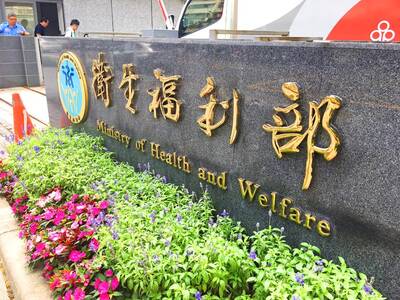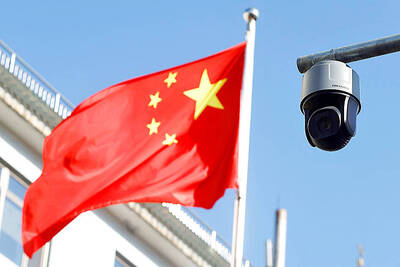The former director of the National Security Bureau's (NSB) special service center, Peng Tzu-wen (彭子文), was reported to have received a stern lecture from a High Court judge yesterday when he appeared in court for a trial in which he is accused of leaking national secrets.
"Try not to be so talkative, because you are a military official," Judge Wang Fu-shing (王復生) was quoting as saying by Chinese-language newspapers, in his remarks to Peng.
When Peng's lawyer referred to Peng as "the general" in the courtroom, the judge snapped, "no titles of office are allowed in my court."
Visibly shocked
Peng and his lawyer seemed visibly shocked by the judge's outburst, the report said.
Peng was indicted in August for leaking national secrets and for potentially putting President Chen Shui-bian's (陳水扁) life in jeopardy, after he disclosed details concerning the deployment of special agents around the president's official residence.
Peng has since been a frequent guest on TV talk shows, using his professional knowledge. He revealed on air details concerning the deployment of special agents' and other plans regarding national emergencies.
Peng told the public that the Presidential Office and the Ministry of National Defense's underground channels would be open on the October 10th National Day, and that two helicopters would be on standby at the Taipei military airport in case of an emergency.
Peng also revealed on TV that he would not "take a bullet for president Chen." Peng is alleged to have leaked the secrets in retaliation after being turned down for promotion. Peng retired as the director of the NSB's special service center in 2003.
Prosecutors have accused Peng of violating the National Secrets Law (國家機密保護辦法).
Peng yesterday told the judge that the NSB and Justice Ministry's Investigation Bureau had illegally recorded his phone calls and that this evidence should be inadmissible in court.

MEDICAL: The bills would also upgrade the status of the Ethical Guidelines Governing the Research of Human Embryos and Embryonic Stem Cell Research to law The Executive Yuan yesterday approved two bills to govern regenerative medicine that aim to boost development of the field. Taiwan would reach an important milestone in regenerative medicine development with passage of the regenerative medicine act and the regenerative medicine preparations ordinance, which would allow studies to proceed and treatments to be developed, Deputy Minister of Health and Welfare Victor Wang (王必勝) told reporters at a news conference after a Cabinet meeting. Regenerative treatments have been used for several conditions, including cancer — by regenerating blood cells — and restoring joint function in soft tissue, Wang said. The draft legislation requires regenerative treatments

POLICE INVESTIGATING: A man said he quit his job as a nurse at Taipei Tzu Chi Hospital as he had been ‘disgusted’ by the behavior of his colleagues A man yesterday morning wrote online that he had witnessed nurses taking photographs and touching anesthetized patients inappropriately in Taipei Tzu Chi Hospital’s operating theaters. The man surnamed Huang (黃) wrote on the Professional Technology Temple bulletin board that during his six-month stint as a nurse at the hospital, he had seen nurses taking pictures of patients, including of their private parts, after they were anesthetized. Some nurses had also touched patients inappropriately and children were among those photographed, he said. Huang said this “disgusted” him “so much” that “he felt the need to reveal these unethical acts in the operating theater

Taiwanese should be mindful when visiting China, as Beijing in July is likely to tighten the implementation of policies on national security following the introduction of two regulations, a researcher said on Saturday. China on Friday unveiled the regulations governing the law enforcement and judicial activities of national security agencies. They would help crack down on “illegal” and “criminal” activities that Beijing considers to be endangering national security, according to reports by China’s state media. The definition of what constitutes a national security threat in China is vague, Taiwan Thinktank researcher Wu Se-chih (吳瑟致) said. The two procedural regulations are to provide Chinese

WARFARE: The PLA aims to use space-based capabilities to enhance its force projection to make the Indo-Pacific region too costly for the US to protect, experts said China is rapidly building space capabilities to be able to launch precision strikes on Taiwan, the US and its allies, US Space Force leaders said at a recent conference in London. China is developing counterspace warfare capabilities including GPS jamming systems and anti-satellite missiles at “breathtaking speed,” said General Stephen Whiting, commander of the US Space Command. In the past six years, Beijing tripled its number of dedicated intelligence, surveillance and reconnaissance satellites, while rapidly fielding dual-use satellites, Whiting said, adding that the capabilities are honed for detecting movements at sea. The Chinese People’s Liberation Army (PLA) might have already achieved substantial benefits